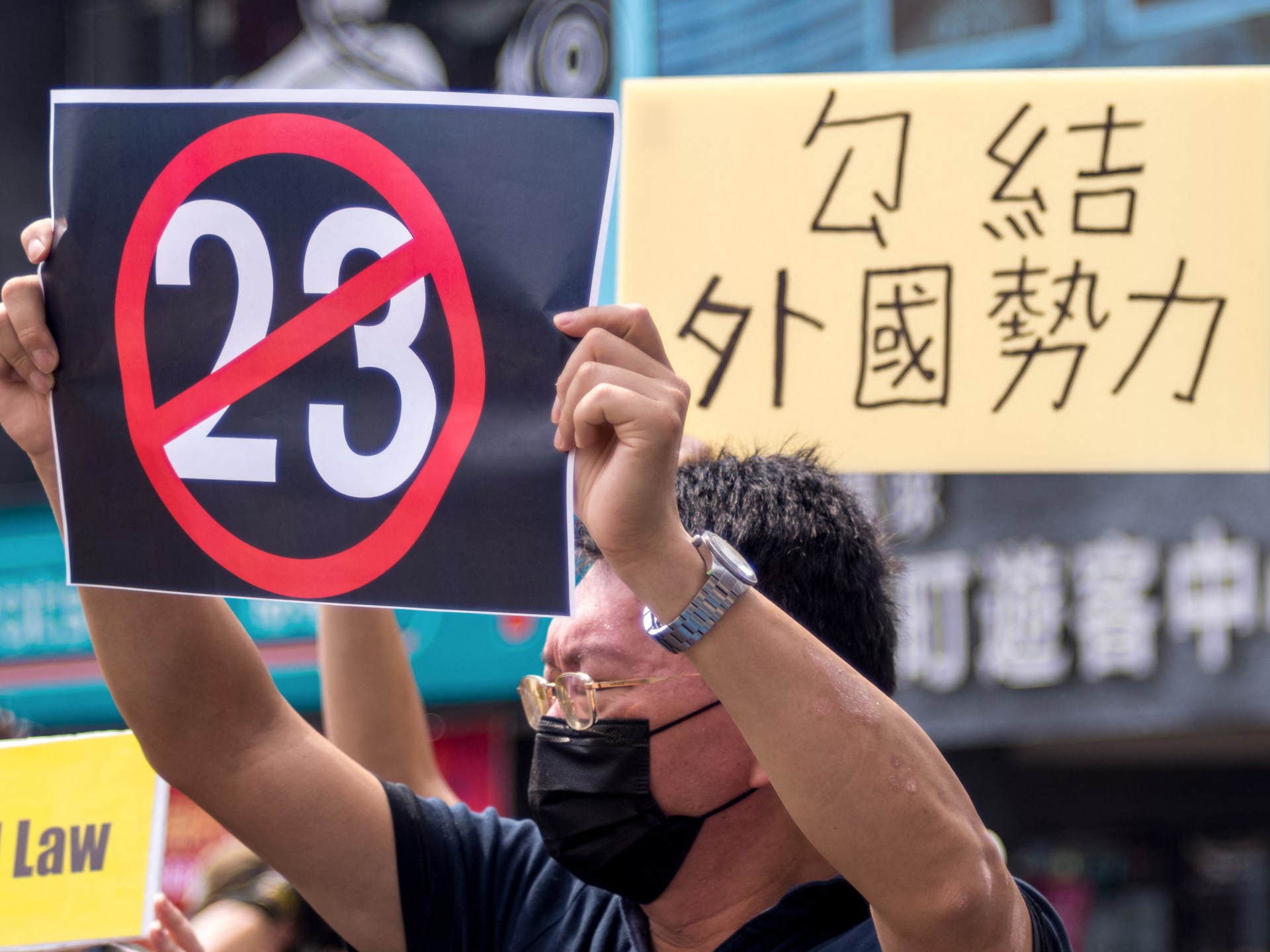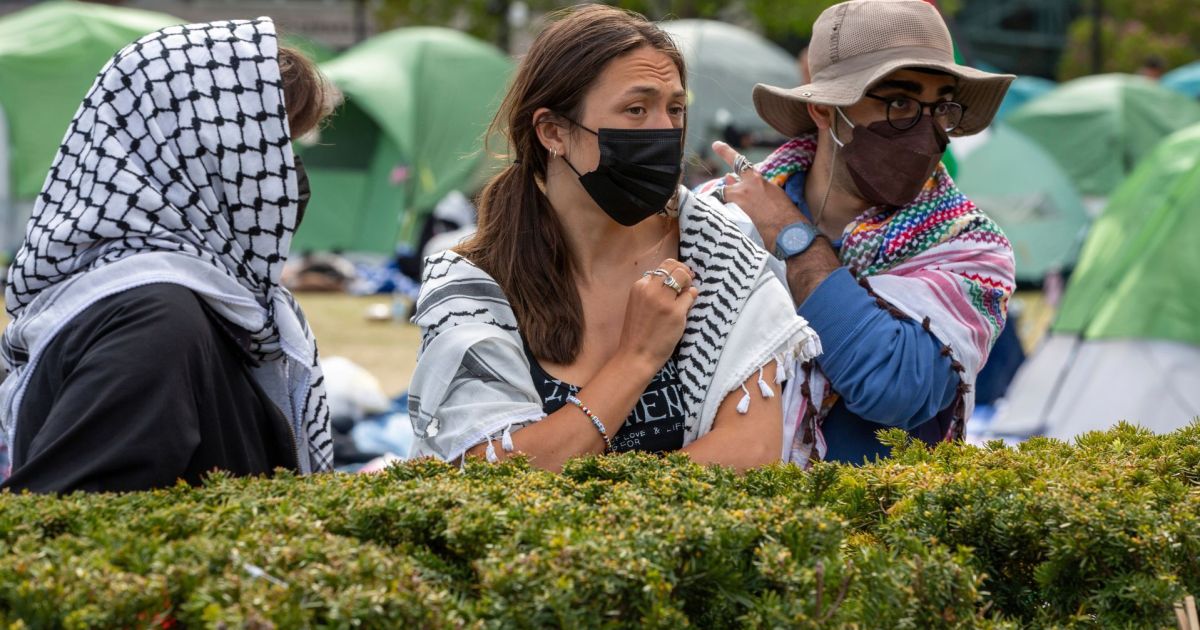Hong Kong’s new security law comes into force amid human rights concerns | Hong Kong Protests News
A new national security law has come into force in Hong Kong despite growing international criticism that it could erode freedoms in the China-ruled city and damage its international financial hub credentials.
The law, also known as Article 23, came into at midnight on Saturday, days after Hong Kong’s pro-Beijing lawmakers passed it unanimously, fast-tracking legislation to plug what authorities called national security loopholes.
Hong Kong Chief Executive John Lee said the law “accomplished a historic mission, living up to the trust placed in us by the Central [Chinese] Authorities”.
He has often cited Hong Kong’s “constitutional responsibility” to create the new legislation as required by the Basic Law, the city’s mini-constitution since its handover from the United Kingdom to China in 1997.
Lee also said the law was necessary to “prevent black-clad violence”, a reference to Hong Kong’s massive and at times violent pro-democracy protests in 2019, which brought hundreds of thousands to the streets demanding greater autonomy from Beijing’s grip.
A previous attempt to pass Article 23 was scrapped in 2003 after 500,000 people protested. This time around, public criticism has been muted amid the security crackdown.
What does the new law entail?
Hong Kong, a former British colony, returned to Chinese rule in 1997 with the guarantee that its high degree of autonomy and freedoms would be protected under a “one country, two systems” formula.
Currently, the new Article 23 law has expanded the British colonial-era offence of “sedition” to include inciting hatred against China’s Communist Party leadership, with an aggravated sentence of up to 10 years in jail.
Under the security law, penalties can run up to life in prison for sabotage endangering national security, treason and insurrection; 20 years for espionage and sabotage; and 14 years for external interference.
City leader Lee is also now empowered to create new offences carrying jail terms of up to seven years through subsidiary legislation, while the security minister can impose punitive measures on activists who are overseas, including cancelling their passports.
Moreover, police powers have also been expanded to permit detaining people for up to 16 days without charge – a jump from the current 48 hours – and to restrict a suspect from meeting lawyers and communicating with others.
International condemnation
The United States, the European Union, Japan and the UK have been among the law’s strongest critics, with UK Foreign Minister David Cameron saying it would “further damage the rights and freedoms” of those in the city.
US Secretary of State Antony Blinken on Friday expressed “deep concern” that the law could be used to undermine rights and curb dissent, adding it could damage Hong Kong’s reputation as an international finance hub.
Meanwhile, Australia, the UK and Taiwan have updated their travel advisories for Hong Kong, urging citizens to exercise caution.
“You could break the laws without intending to and be detained without charge and denied access to a lawyer,” the Australian government said.
In a joint statement led by the overseas-based Hong Kong Democracy Council, 145 community and advocacy groups have also condemned the law and called for sanctions on Hong Kong and Chinese officials involved its passage, as well as review the status of Hong Kong’s Economic & Trade Offices worldwide.
“It’s time for the United States to step up for political prisoners and freedom in Hong Kong. Every time we let authoritarians get away with atrocities, we risk other bad actors attempting to do the same,” wanted Hong Kong activist Frances Hui said in Washington, during a news conference with the US Congressional-Executive Commission on China (CECC), which advises Congress.
Protests have also taken place in Taipei’s fashionable Ximending shopping district, where more than a dozen Hong Kong, Taiwan and Tibet activists gathered to protest the law and shout their denunciations. Other protests are planned in Australia, the UK, Canada, Japan and the US.
But authorities in Hong Kong have “strongly condemned such political manoeuvres with skewed, fact-twisting, scaremongering and panic-spreading remarks”.
What is China’s stance?
China has defended Hong Kong’s security crackdown as essential to restoring order after months of sometimes violent antigovernment and pro-democracy protests in 2019.
About 291 people have been arrested for national security offences, with 174 people and five companies charged so far.
Chinese authorities insist all are equal before the security laws that have restored stability, but while individual rights are respected no freedoms are absolute.
Check out our Latest News and Follow us at Facebook
Original Source







